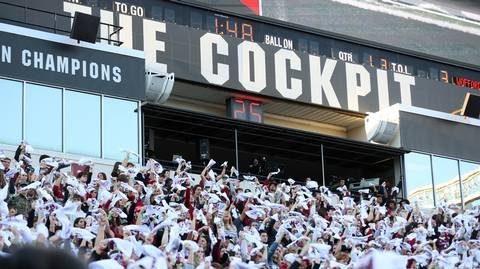South Carolina Students Face Increased Fees Amid College Sports Revenue Shift
In response to major shifts in college athletics — particularly the recent House v. NCAA settlement — the University of South Carolina (USC) is adding a new cost for students, aimed at keeping its athletics programs competitive.
USC students will now pay an additional $300 annually in a newly approved “athletics auxiliary fee,” the university confirmed. This fee comes on top of the existing $172 yearly athletics fee that grants student access to Gamecock sporting events, including football through a ticket lottery system.
“All current student access privileges will remain intact,” a university spokesperson assured. But with the new auxiliary fee in place, full-time students will now pay $472 per year in athletic-related charges.
USC athletic director Jeremiah Donati emphasized the importance of the student fanbase in a changing collegiate sports landscape.
“Access to world-class athletic events is one of the many reasons students are attracted to USC,” Donati said in a statement Friday. “To stay competitive in an evolving collegiate landscape, we must create environments where students can have a great fan experience while cheering on the Gamecocks.”

With over 38,300 students enrolled in Fall 2024, the new fee could generate an estimated $11.5 million in annual revenue.
However, this money won’t fund athlete scholarships, the upcoming Williams-Brice Stadium renovations, or any part of the $20.5 million revenue share allowed under the NCAA’s new guidelines. According to the university, it also will not be used to cover the legal costs or payouts stemming from the House settlement.
Instead, the additional revenue will be invested in:
- Student access to events and ticket lotteries
- Upgraded in-game experiences
- Facility improvements
- Increased staffing for health and safety at sports events
South Carolina is following a trend seen across several universities. Clemson recently imposed a $300 mandatory athletics fee for the first time, while Florida and Georgia charge based on credit hours or per semester, respectively.
“We’re not alone in this,” said Donati. “Institutions across the country are being asked to find creative ways to maintain excellence and adapt to the future of college sports.”
As the business of college athletics evolves — and revenue sharing with players becomes reality — schools like USC are leaning more on students to keep their programs at the top of their game.



